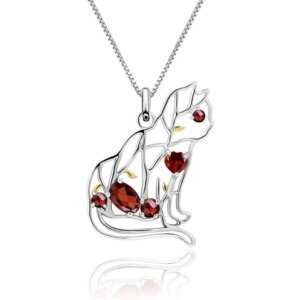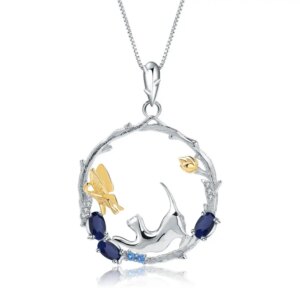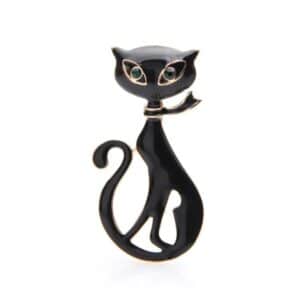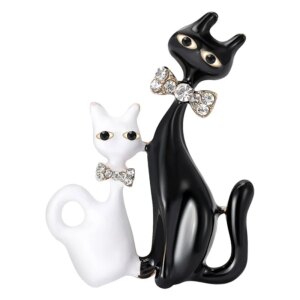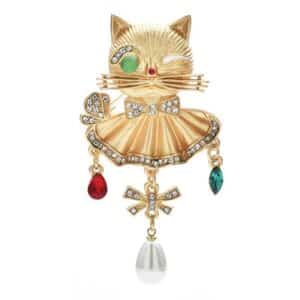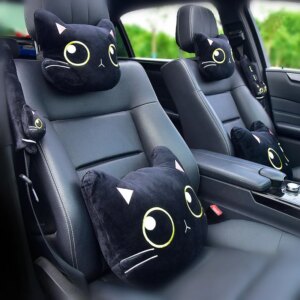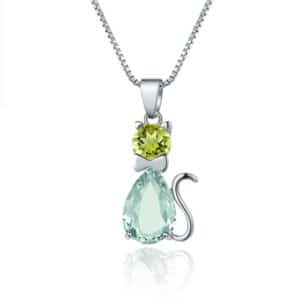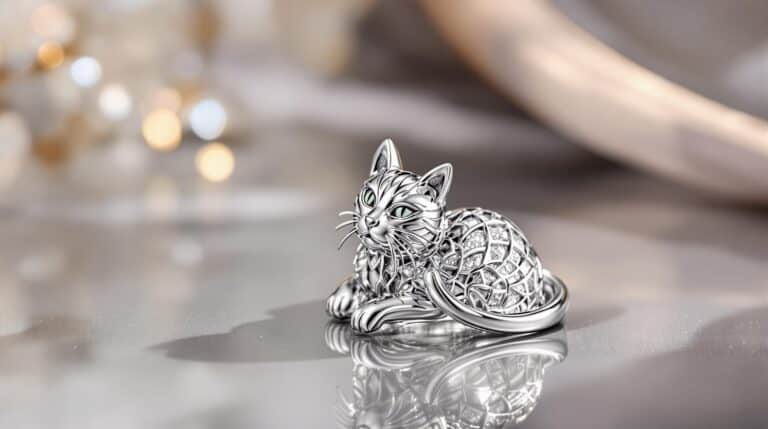Cat Karma Creations understands that cats not eating can be a concerning issue for pet owners. This article explores the common reasons why cats might lose their appetite, the symptoms to watch for, and practical tips for managing and preventing this problem. By understanding the underlying causes and taking appropriate action, you can ensure your cat remains healthy and happy. Discover how to create a supportive environment and when to seek professional help.
Common Causes of Cats Not Eating
Stress and Anxiety
Cats are sensitive creatures, and stress can significantly impact their appetite. Common stressors include changes in the environment, such as moving to a new home, the introduction of a new pet, or even a change in the household routine. Stress can cause a cat not eating food, leading to lethargy and weight loss. To help your cat, try to maintain a consistent routine and provide a quiet, comfortable space where they can retreat and feel safe. At Cat Karma Creations, we understand the importance of a stress-free environment for your feline friend.
Illness and Disease
Illness is another major cause of a cat not eating. Conditions such as kidney disease, diabetes, and thyroid disorders can all lead to a loss of appetite. If your cat is not eating and showing other symptoms like vomiting, diarrhea, or fever, it’s important to consult a veterinarian. Early diagnosis and treatment can help manage these conditions and improve your cat’s quality of life. We at Cat Karma Creations recommend seeking professional help if you notice any of these symptoms.
Dental Issues
Dental problems, such as tooth decay, gum disease, or oral infections, can cause a cat not eating. These issues can be painful and make it difficult for your cat to chew and swallow food. Regular dental check-ups and good oral hygiene can help prevent dental issues. If you suspect a dental problem, take your cat to the vet for a thorough examination and appropriate treatment. Our team at Cat Karma Creations emphasizes the importance of regular dental care for your cat’s overall health.
Changes in Environment
Cats are creatures of habit, and any changes in their environment can affect their appetite. Moving to a new home, rearranging furniture, or even a change in the type of food can cause a cat not eating. Gradual transitions and familiar scents can help ease the stress of environmental changes. Introduce new foods slowly and monitor your cat’s reaction to ensure they are comfortable with the change. At Cat Karma Creations, we offer a variety of cat-themed gifts and jewelry to help create a cozy and familiar space for your cat.
Symptoms to Watch For
Lethargy and Weakness
If your cat is not eating and appears lethargic or weak, it could be a sign of an underlying health issue. Lethargy and weakness are common symptoms of cats not eating and can indicate conditions such as infections, organ failure, or other serious illnesses. If your cat is lethargic and not eating, it’s important to seek veterinary care to rule out any serious health concerns. At Cat Karma Creations, we encourage you to stay vigilant and proactive in your cat’s health care.
Weight Loss
Weight loss is a significant concern when a cat is not eating. Cats not eating and losing weight can be a sign of malnutrition or an underlying health issue. Monitor your cat’s weight regularly and consult a vet if you notice a significant decrease. Early intervention can help prevent further health complications and ensure your cat receives the necessary care. We at Cat Karma Creations recommend regular weigh-ins and check-ups to keep your cat healthy.
Dehydration
Cats not eating but drinking water is a common scenario, but it’s still important to monitor their hydration levels. Dehydration can occur if your cat is not eating and drinking enough, leading to serious health issues. Ensure your cat has access to fresh water at all times and watch for signs of dehydration, such as dry gums, sunken eyes, and lethargy. If your cat is dehydrated and not eating, seek veterinary assistance immediately. At Cat Karma Creations, we provide tips and products to help keep your cat hydrated and healthy.
Vomiting and Diarrhea
Vomiting and diarrhea are common symptoms when a cat is not eating. These symptoms can indicate a variety of health issues, including gastrointestinal problems, infections, or dietary sensitivities. If your cat is not eating and vomiting or experiencing diarrhea, it’s important to consult a vet. They can provide a proper diagnosis and recommend appropriate treatment to help your cat recover. Our team at Cat Karma Creations is here to support you and your feline friend through these challenging times.
Management Tips for Cats Not Eating
Create a Calm Environment
Creating a calm and comfortable environment is crucial for a cat not eating. Stress and anxiety can significantly impact a cat’s appetite, so it’s important to provide a quiet, stress-free space for your cat to eat. Ensure the feeding area is away from loud noises and disruptions, and use calming techniques such as pheromone diffusers or soothing music to help your cat relax. At Cat Karma Creations, we offer a range of products, including the Meditation Cushion with Cat Design, to help create a peaceful atmosphere for your cat.
Offer a Variety of Foods
Offering a variety of foods can help stimulate a cat’s appetite. If your cat is not eating wet food, try different brands, flavors, and textures to find what they prefer. Wet food is often more palatable for cats and can help improve their appetite. Similarly, if your cat is not eating dry food, try different brands and flavors to find a food that they enjoy. Mixing wet and dry food can also be an effective way to encourage your cat to eat. At Cat Karma Creations, we understand the importance of a balanced diet and offer a variety of cat-themed gifts and jewelry to help you create a positive feeding experience.
Mix Wet and Dry Food
Mixing wet and dry food can be a useful strategy for a cat not eating. Wet food is often more appealing to cats due to its moisture content and rich flavors. Mixing wet and dry food can help encourage your cat to eat and ensure they receive a balanced diet. Gradually increase the amount of wet food in the mix to help your cat transition to a new diet. Our team at Cat Karma Creations is here to provide you with tips and support to help your cat enjoy their meals.
Monitor Eating Habits
Regularly monitoring your cat’s eating habits is essential for early detection of any issues. Keep track of how much your cat is eating and any changes in their appetite. If you notice a significant decrease in their food intake, consult a vet. Early intervention can help prevent more serious health problems and ensure your cat receives the necessary care. At Cat Karma Creations, we recommend keeping a journal to track your cat’s eating patterns and any other health-related observations.
When to See a Vet
Persistent Symptoms
If your cat is not eating and the symptoms persist for more than 24 hours, it’s important to consult a vet. Persistent symptoms like lethargy, weight loss, and dehydration can indicate a serious health issue. Early diagnosis and treatment can help improve your cat’s condition and prevent further complications. Our team at Cat Karma Creations encourages you to seek professional help if you notice any persistent symptoms.
Severe Weight Loss
Severe weight loss is a significant concern when a cat is not eating. Cats not eating and losing weight can be a sign of malnutrition or an underlying health issue. If you notice a significant decrease in your cat’s weight, seek veterinary care immediately. The vet can perform a thorough examination and recommend appropriate treatment to help your cat regain their health. At Cat Karma Creations, we recommend regular weigh-ins and check-ups to monitor your cat’s health.
Difficulty Breathing
Difficulty breathing is a serious symptom that requires immediate veterinary attention. If your cat is not eating and having difficulty breathing, it could be a sign of a respiratory issue or other serious health problem. Do not delay in seeking professional help, as prompt treatment can be crucial for your cat’s recovery. Our team at Cat Karma Creations is here to support you and your feline friend through these challenging times.
Fever and Dehydration
Fever and dehydration are serious symptoms that can occur when a cat is not eating. Cats not eating and fever can indicate an infection or other health issue. Dehydration can also be a significant concern, especially if your cat is not drinking enough water. If your cat is experiencing these symptoms, consult a vet immediately. They can provide the necessary care to help your cat recover and prevent further health complications. At Cat Karma Creations, we emphasize the importance of prompt veterinary care.
Popular Quote
“A cat improves the garden wall in sunshine and the hearth in rain.” – William Butler Yeats
Statistical Fact
According to the American Veterinary Medical Association (AVMA), approximately 30% of cats brought to the vet for non-routine visits are there due to a loss of appetite. This statistic underscores the importance of addressing this issue promptly and seeking professional help when necessary. (Source: AVMA, 2021)
Three Tips for Managing Cats Not Eating
1. Create a Comfortable Feeding Area
Ensure your cat has a quiet, comfortable space to eat. Use a calming diffuser or play soothing music to help reduce stress. This can make mealtime more appealing and encourage your cat to eat.
2. Gradually Introduce New Foods
If you need to change your cat’s diet, do so gradually. Mix a small amount of the new food with the old food and gradually increase the proportion of new food over several days. This can help your cat adjust and prevent digestive upset.
3. Monitor Hydration Levels
Even if your cat is not eating, ensure they have access to fresh water. Monitor their hydration levels by checking for dry gums, sunken eyes, and lethargy. If you notice signs of dehydration, consult a vet immediately.
Popular Questions
1. Why is my cat not eating?
Cats not eating can be due to various reasons, including stress, illness, dental issues, or changes in their environment. It’s important to observe your cat for other symptoms and consult a vet if the issue persists.
2. How long can a cat go without eating?
While cats can survive for a few days without food, it’s concerning if they go more than 24 hours without eating. Prolonged fasting can lead to serious health issues, so it’s important to seek veterinary care if your cat is not eating.
3. What can I do if my cat is not eating?
Create a calm environment, offer a variety of foods, and monitor your cat’s eating habits. If the issue persists, consult a vet for a proper diagnosis and treatment plan.
Final Thoughts About Cats Not Eating
Addressing a cat’s loss of appetite requires a combination of understanding, patience, and proactive care. By recognizing the signs and taking appropriate action, you can help your cat regain their appetite and maintain their health. If symptoms persist, always consult a veterinarian for professional advice. Visit our website to find excellent gifts for cat lovers and follow us on Facebook and Instagram for more tips and updates. If you have any questions or need assistance, feel free to contact us at info@catkarmacreations.com or call us at (800) 343-1604.

